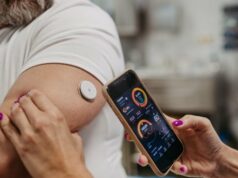Healthcare providers have been urged to do a hypoglycemia (low blood glucose) assessment every time they have an appointment with someone with diabetes.
Debbie Hinnen, an advanced diabetes nurse and certified diabetes educator with the University of Colorado Health, and Diana Isaacs, an endocrine clinical pharmacy specialist with the Cleveland Clinic Diabetes Center, say there are several steps diabetes care and education specialists can take to help people avoid dangerously low blood glucose.
Speaking during the annual meeting of the American Association of Diabetes Educators, Hinnen warned of the dangers of “pseudohypoglycemia” – when a person with diabetes experiences a rapid drop in glucose that is well above the hypoglycemic range.
The physiologic responses to low blood glucose are vast, Hinnen said, so helping patients to assess hypo symptoms and patterns can help to prepare them for future incidences of low blood glucose.
“It’s frightening,” she said. “Sometimes people will have a seizure, and that is what triggers the counterregulatory hormones. The care partners are terrified. We are probably the people that have some of the greatest impact in treating and hopefully preventing hypoglycemia.”
Isaacs noted that many people with diabetes underestimate their hypoglycemia, or do not connect their symptoms with episodes of very low blood glucose.
“That is another reason why I really like people to check [blood glucose] when it is happening,” Isaacs said. “I’m sure we have all had that patient who mistakes feeling very tired for a low blood sugar, and then treat it, and they were actually at 13.9 mmol/L (250 mg/dL).”
Isaacs also highlighted the importance of preventing hypoglycemic episodes by reminding patients of the three types of medication that can cause low blood glucose: insulin, sulfonylureas and glinides
“That is important as you are looking at someone’s medication list and trying to identify causes and prevent hypoglycemia.”
The American Diabetes Association, working alongside the European Association for the Study of Diabetes, has issued new guidance dividing hypoglycemia into three levels, with level 3 the most severe and described as ‘assistance required’.
In cases such as these, the new guidelines state there is no specific glucose threshold. The person with diabetes will experience severe cognitive impairment and require third-party help to recover.
Visit Diabetes Digital Media’s Hypo Program for information on managing blood glucose levels, avoiding hypos and conversing with your doctor, nurse or dietitian about how they can help you to understand your hypo symptoms in greater detail.








